There are plenty of opportunities for young people from NI looking for a career in the agri-food industry, and for those who might be more adventurous, there is the option of heading to Harper Adams University in Shropshire.
With over 4,500 students, the university is the UK’s largest specialist provider of higher education for the agriculture and rural sector. Courses range from the traditional BSc in agriculture or agricultural engineering to the likes of zoology, veterinary nursing or a new veterinary medicine degree delivered in partnership with Keele University in Staffordshire.
During a visit by a small group from NI last Friday, Irish students studying at Harper spoke highly of the quality of teaching, the facilities and the wider experience of coming to England to study.
Employment
All students are expected to take a full year of industry placement, and that has been a key factor in Harper consistently having very high rates of graduate employment (97.4% for full-time, first degree graduates).
“Probably as many as 40% of students have job opportunities on the back of their placement. Some go back to their farming business. Some go into postgraduate study. Some go travelling,” explained Maria Simpson, Careers Service manager at the university.
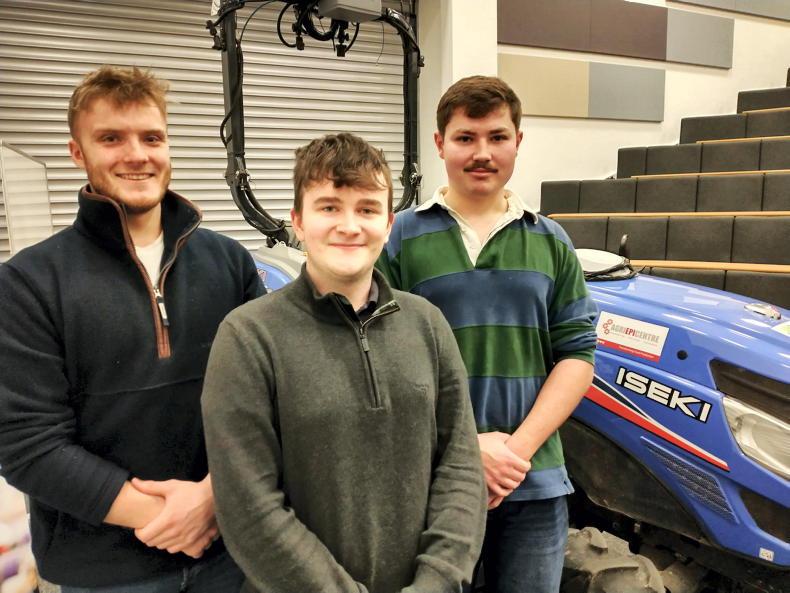
Harper Agricultural Engineering students (from left), Ross Smyth, Hillsborough, Michael Rice, Castlerock and Rory McElhinney, Limavady.
The university also offers a dedicated recruitment service, helping employers connect with students, but given the high demand, there are probably more vacancies on offer than students, said Maria.
Against that backdrop she maintained that employers need to think about how they sell themselves to students, be open to considering people from a non-farming background, and also be open to offering placement opportunities.
An area where students have consistently been in high demand is agricultural engineering. “One thing for certain is that they should all get jobs. They are able to attract high starting salaries,” added Parmjit Chima, head of the Engineering Department.
Vet medicine
A significant development at Harper in recent years has been a £10m investment in facilities to accommodate a new five-year Bachelor of Veterinary Medicine and Surgery qualification delivered in partnership with Keele University at the Harper and Keele Veterinary School.
The first intake of 120 students occurred in 2020, rising to 130 in 2021 and the maximum of 140 in 2022, with student numbers split evenly across both sites.
Farm operations
Students at Harper have also access to a large farming operation, The Harper Adams Future Farm, extending to around 500ha, across various enterprises to include dairy, beef, sheep pigs and arable.
The dairy unit includes around 370 cows, with the main batch milked through a 40-pt rotary, and a smaller herd of 60 cows milked via a robot.
A longer-term target for the farm is to produce net zero greenhouse gas emissions by 2030.
“It will be a massive challenge. I don’t want to achieve it by cutting livestock numbers,” said farm manager Scott Kirby.
To achieve the target will probably require a significant investment in anaerobic digestion technology to produce biomethane and hydrogen as renewable energy sources.
Student profile:
Joseph Compston
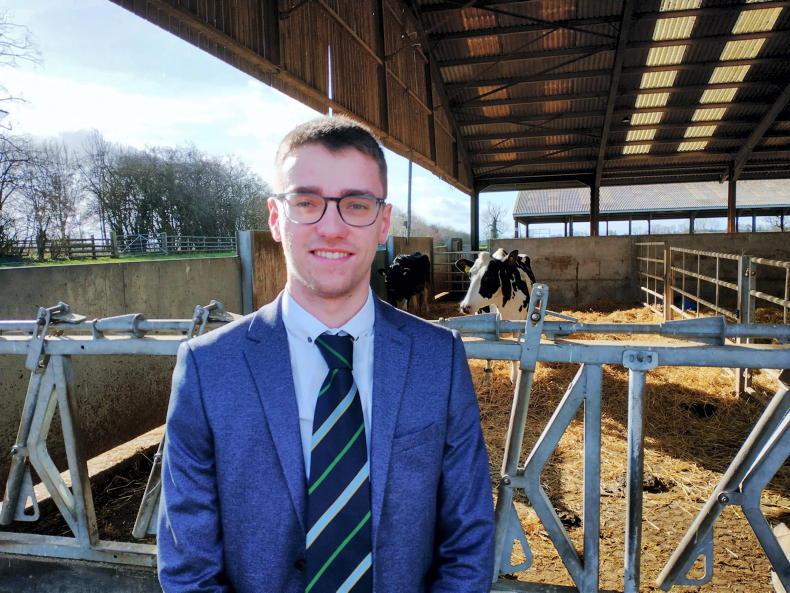
Joseph Compston from Ballymena.
Year 2 BSc Honours in Agriculture. Chair of Harper Adams Ireland
The home farm.
We milk 160 pedigree Holstein cows in a year-round calving system outside Ballymena. The herd is managed by my dad, Brian.
Why come to Harper Adams?
A few of my friends back home came to Harper as students and the feedback I received was all positive. The university has a good reputation and high employability rates for graduates, but ultimately I wanted to challenge myself away from home.
How important is Harper Ireland?
We have about 140 students at the university from Ireland. Harper Ireland is a great way to meet new friends and settle into life here. We organise various events and trips throughout the year. When I first came over, I didn’t know anyone and will admit to being a bit homesick. The society helped change that.
What happens next for you?
I am going on placement for 12 months before returning for the final year of my course. I have a position lined up with Huddlestone Farmers Ltd on their dairy unit in West Sussex. It is a family-run business milking 420 cows through eight robots. They will give me plenty of opportunities to learn. When I visited the farm, I was blown away.
Once you finish Harper, what are your intentions?
I might do a bit of travelling. I would like to see a bit of the world, and perhaps get a farm manager job. But after that, I want to come back to NI and help push our own business forward.
How do you see the future for your farm in NI?
We have a good location just outside Ballymena and there is an opportunity to think about diversification – maybe a milk vending machine and a farm shop. I also want to make our farm more sustainable, and one way to do that is to grow as much of our own feed as possible.
Read more
ABP UK launch £1.5m farm scheme
Robots on UK arable farms by 2025
There are plenty of opportunities for young people from NI looking for a career in the agri-food industry, and for those who might be more adventurous, there is the option of heading to Harper Adams University in Shropshire.
With over 4,500 students, the university is the UK’s largest specialist provider of higher education for the agriculture and rural sector. Courses range from the traditional BSc in agriculture or agricultural engineering to the likes of zoology, veterinary nursing or a new veterinary medicine degree delivered in partnership with Keele University in Staffordshire.
During a visit by a small group from NI last Friday, Irish students studying at Harper spoke highly of the quality of teaching, the facilities and the wider experience of coming to England to study.
Employment
All students are expected to take a full year of industry placement, and that has been a key factor in Harper consistently having very high rates of graduate employment (97.4% for full-time, first degree graduates).
“Probably as many as 40% of students have job opportunities on the back of their placement. Some go back to their farming business. Some go into postgraduate study. Some go travelling,” explained Maria Simpson, Careers Service manager at the university.

Harper Agricultural Engineering students (from left), Ross Smyth, Hillsborough, Michael Rice, Castlerock and Rory McElhinney, Limavady.
The university also offers a dedicated recruitment service, helping employers connect with students, but given the high demand, there are probably more vacancies on offer than students, said Maria.
Against that backdrop she maintained that employers need to think about how they sell themselves to students, be open to considering people from a non-farming background, and also be open to offering placement opportunities.
An area where students have consistently been in high demand is agricultural engineering. “One thing for certain is that they should all get jobs. They are able to attract high starting salaries,” added Parmjit Chima, head of the Engineering Department.
Vet medicine
A significant development at Harper in recent years has been a £10m investment in facilities to accommodate a new five-year Bachelor of Veterinary Medicine and Surgery qualification delivered in partnership with Keele University at the Harper and Keele Veterinary School.
The first intake of 120 students occurred in 2020, rising to 130 in 2021 and the maximum of 140 in 2022, with student numbers split evenly across both sites.
Farm operations
Students at Harper have also access to a large farming operation, The Harper Adams Future Farm, extending to around 500ha, across various enterprises to include dairy, beef, sheep pigs and arable.
The dairy unit includes around 370 cows, with the main batch milked through a 40-pt rotary, and a smaller herd of 60 cows milked via a robot.
A longer-term target for the farm is to produce net zero greenhouse gas emissions by 2030.
“It will be a massive challenge. I don’t want to achieve it by cutting livestock numbers,” said farm manager Scott Kirby.
To achieve the target will probably require a significant investment in anaerobic digestion technology to produce biomethane and hydrogen as renewable energy sources.
Student profile:
Joseph Compston

Joseph Compston from Ballymena.
Year 2 BSc Honours in Agriculture. Chair of Harper Adams Ireland
The home farm.
We milk 160 pedigree Holstein cows in a year-round calving system outside Ballymena. The herd is managed by my dad, Brian.
Why come to Harper Adams?
A few of my friends back home came to Harper as students and the feedback I received was all positive. The university has a good reputation and high employability rates for graduates, but ultimately I wanted to challenge myself away from home.
How important is Harper Ireland?
We have about 140 students at the university from Ireland. Harper Ireland is a great way to meet new friends and settle into life here. We organise various events and trips throughout the year. When I first came over, I didn’t know anyone and will admit to being a bit homesick. The society helped change that.
What happens next for you?
I am going on placement for 12 months before returning for the final year of my course. I have a position lined up with Huddlestone Farmers Ltd on their dairy unit in West Sussex. It is a family-run business milking 420 cows through eight robots. They will give me plenty of opportunities to learn. When I visited the farm, I was blown away.
Once you finish Harper, what are your intentions?
I might do a bit of travelling. I would like to see a bit of the world, and perhaps get a farm manager job. But after that, I want to come back to NI and help push our own business forward.
How do you see the future for your farm in NI?
We have a good location just outside Ballymena and there is an opportunity to think about diversification – maybe a milk vending machine and a farm shop. I also want to make our farm more sustainable, and one way to do that is to grow as much of our own feed as possible.
Read more
ABP UK launch £1.5m farm scheme
Robots on UK arable farms by 2025





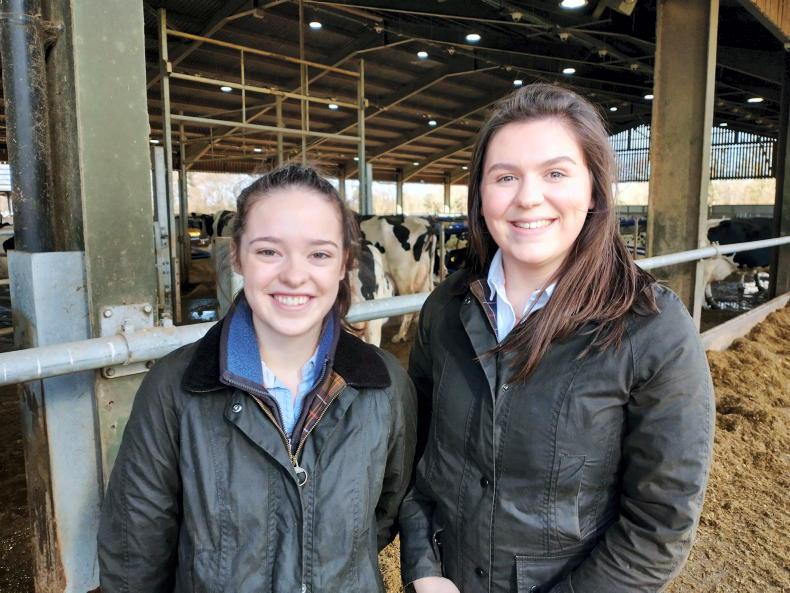

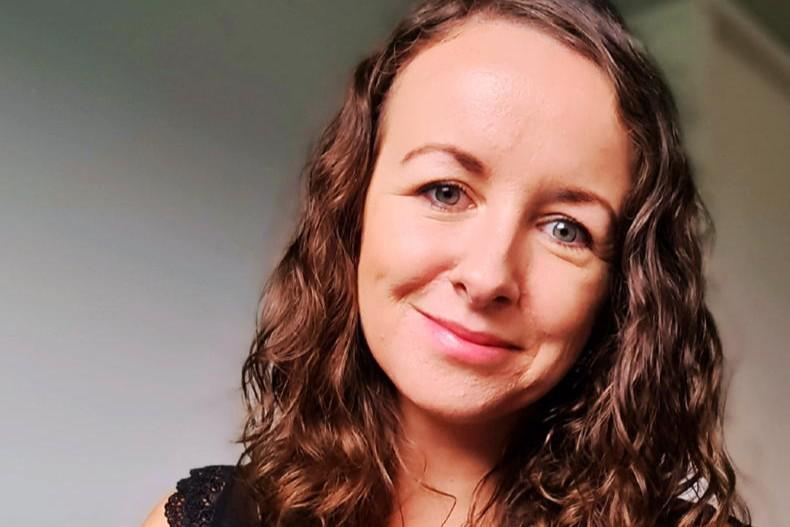

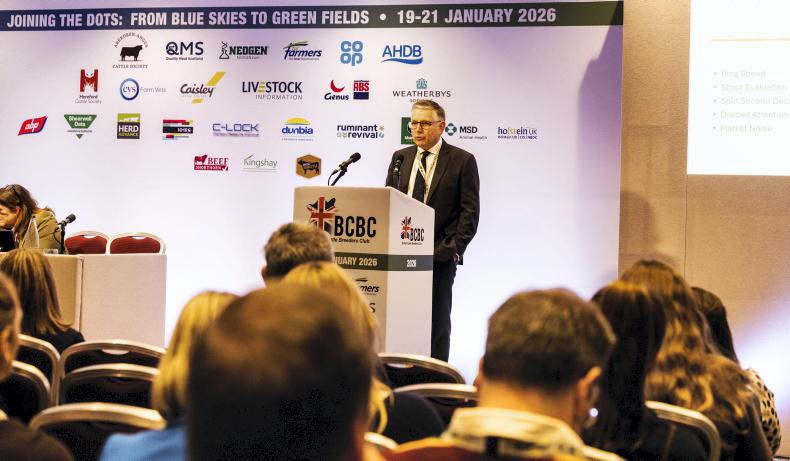
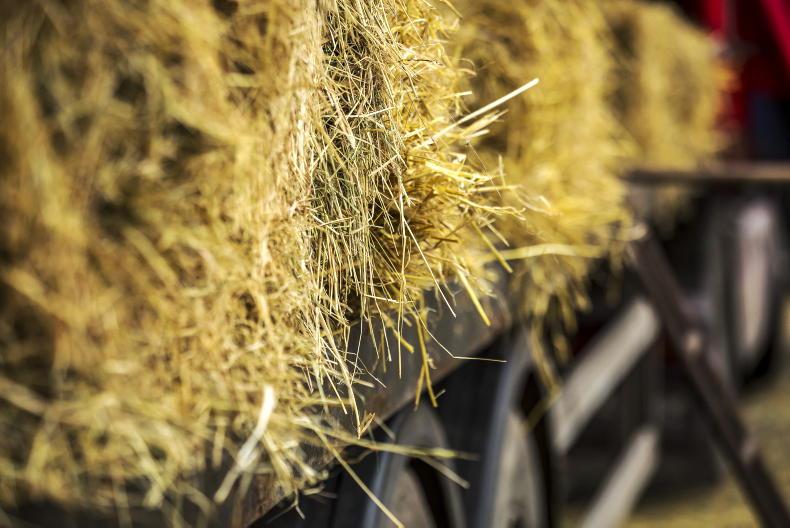
SHARING OPTIONS